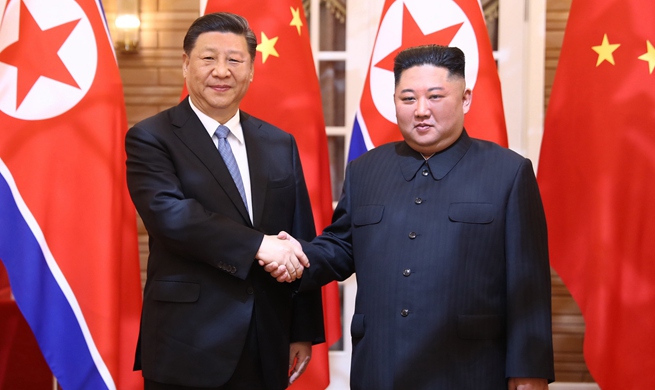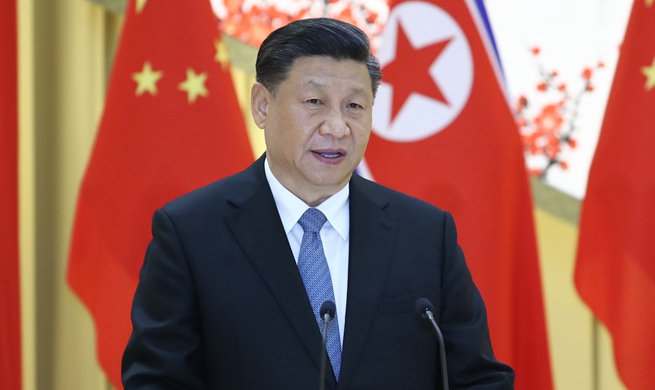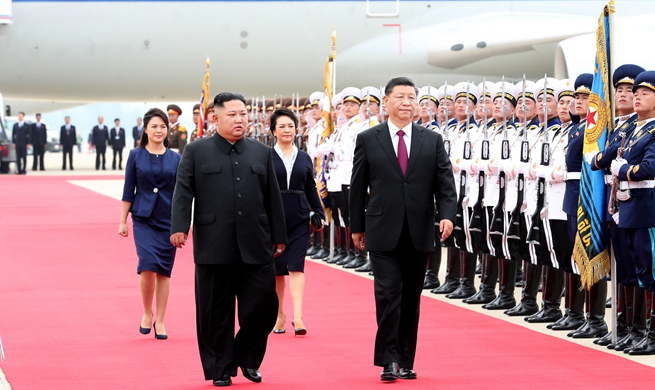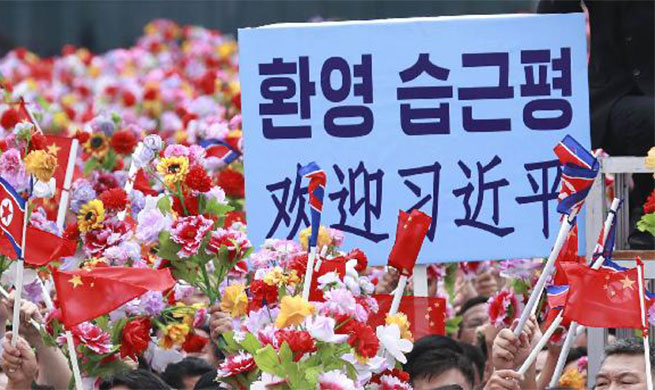HARARE, June 21 (Xinhua) -- Zimbabwe's largest confederation of trade unions, the Zimbabwe Congress of Trade Unions (ZCTU), on Friday said it would call for employers to pay their workers in foreign currency starting June 2019, as agitation grows among the general workforce for employers to review salaries upward in view of the escalating cost of living.
ZCTU this week called for labor minister Sekai Nzenza to convene an urgent Tripartite Negotiating Forum (TNF) meeting to map the way forward as prices of basic commodities and other services continued to rise while salaries remained the same.
TNF is a body that seeks to ensure consultation, cooperation and negotiation on social and economic issues by the government, organized business and organized labor.
In a post on Twitter Friday, ZCTU said all workers should unite in calling for a review of their salaries.
"Workers of Zimbabwe, we call upon all of you to fully support the ZCTU's call in the TNF for USD salaries starting from June 2019. It is about all of us, the suffering is unbearable and we must put all our efforts in achieving this," the organization said.
Banking sector workers on Thursday joined others in engaging their employers to review salaries, saying that they were now in a dire situation as prices of basic commodities continued to rise against static wages.
Teachers under the banner of the Progressive Teachers Union of Zimbabwe said they would not be able to report for duty for the whole week starting June 24.
It is reported that if the grievances over their working conditions were not met, the teachers would reduce the number of days they report for duty to two a week.
Worker representatives from State universities have also raised concern over their working conditions and have also cited incapacitation as a reason for them failing to meet their obligations in the near future.
In the health sector, workers are still divided over they need to go on a fully fledged strike or to give negotiations another chance.
Zimbabwe's annual inflation surged in May as prices of basic commodities and other goods continued on an upward spiral.
According to the Zimbabwe National Statistics Agency, inflation rose to 97.85 percent from 75.86 percent in April mainly as a result of increases in the prices of food and non-alcoholic beverages, clothing and footwear, health and transport.
Month-on-month inflation gained 7.02 percentage points to close the month at 12.54 percent.
Price increases have largely been caused by a surging black market exchange rate where the local currency is trading at around 10 to the U.S. dollar against an interbank rate of 1 U.S. dollar to 6 RTGS dollars.
Many companies are sourcing foreign currency on the black market as official coffers fail to meet demand.
Finance minister Mthuli Ncube said recently that prices would soon start to fall, but many people are skeptical about his utterances given the prevailing situation where prices of some goods are rising almost daily and suppliers of goods and services are now demanding payment in U.S. dollars.













